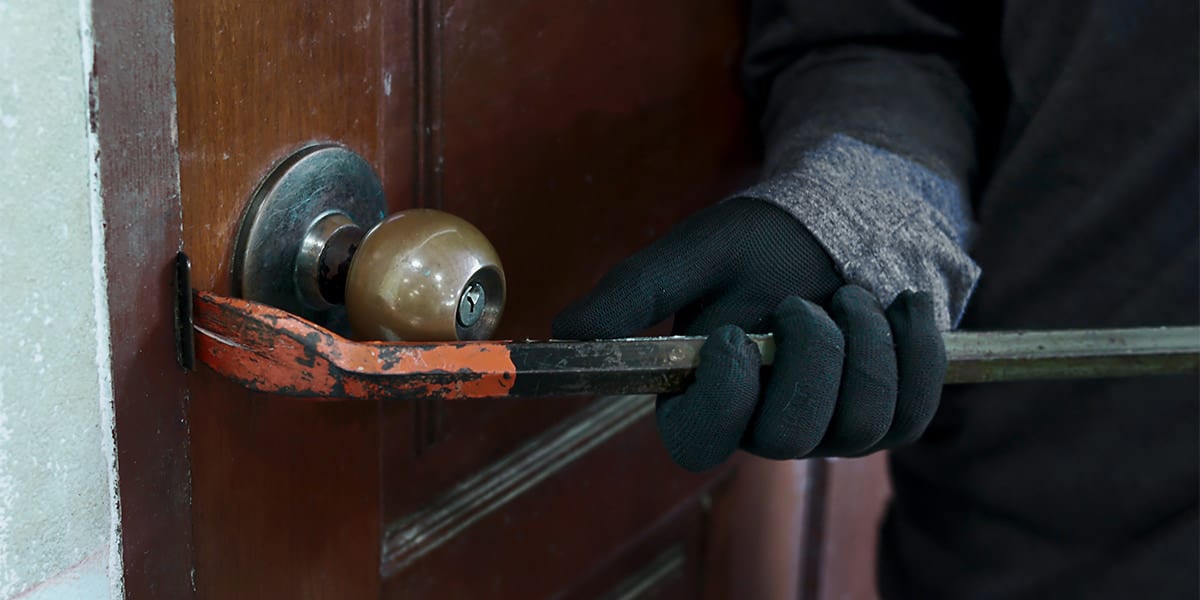Negotiating with illegal tenants for payment of bills or terminating supplies once the house is squatted are some of the most frequent and dangerous
Squatting has become, along with non-payment of rent, the major headache for small homeowners in Spain.
According to estimates by the Plataforma de Afectados por la Ocupación, this problem affects some 100,000 properties throughout the country and there are about 40 new squats every day. Official data place Catalonia, Andalusia, Valencia and Madrid as the most affected regions in the country.
In many cases, it is the owners themselves who unknowingly encourage and legitimize the squatting of their properties. For example, negotiating with the squatters the payment of the apartment’s utilities to try to lessen the economic impact. Acts that, even if in good faith, give illegal tenants a foothold, as they hint that there could be an oral lease.
From the Rental Negotiating Agency (ANA) explain that “on many occasions, the cost of squatting for the owners is very high, because in addition to being deprived of the use of their homes, they would have to assume a high cost for the payment of the utilities that the homes have contracted in their name, in addition to continuing to pay the community expenses, and finally, all the legal expenses involved in the processing of legal proceedings and the costs to repair the existing damages when the squatters leave”.
Mistakes to avoid and tips to follow
To lessen the damage caused by a squat, ANA summarizes the pitfalls to be avoided by landlords, the consequences and some practical advice.
- To have the supplies discharged. The company reminds that, as far as possible, it is advisable to have the household utilities, such as electricity, water or gas, disconnected in those homes where a crime of usurpation can be committed while they are empty while waiting for a tenant or a new owner. The objective, according to ANA, is that “squatters cannot take advantage of supplies registered in the name of the owners”.
- Allow squatters to pay for supplies. During squats, it is not advisable for owners, in an attempt to reduce costs, to accept offers from squatters to pay for community expenses or utilities. “This would be detrimental to landlords, because such payments would later be used to justify the legitimacy of the encroachment,” argues the Rental Negotiating Agency. A receipt in his name allows the squatter to register in the house, “and that’s the end of it,” the company insists.
- Cut off supplies to squatters. Once the illegal tenants have already taken possession of the property, it is important that the owners do not turn off the supplies of the squatted houses, “because they could incur in a crime of coercion,” according to ANA. However, they can lower the contracted power to the minimum to reduce the amount of the bills.
- To have vacant housing. It is always desirable that unused properties are not vacant. “Those are the homes that are preferably squatted, and where it takes the longest to evict squatters. To have them like this, at least, it is better to rent them or temporarily give them to family members,” the company points out.
- To have an alarm installed. The entity also advises, whenever possible, to install alarms in homes, “because the immediate communication of the jump to the police would prove the flagrancy of the commission of the crime and the police could act without judicial authorization,” explains the company.
- Alerting the police to strange noises. The Rent Negotiating Agency also advises that “neighbors of the properties, upon detecting strange noises (usually when a door is opened and the lock is unlocked, noises are usually produced) should notify the police, because this way could act quickly and catch squatters ‘in the act’ without waiting for court authorization“. In this sense, he adds that “it would be very interesting for property managers to make this recommendation known to their administrators, because it would avoid many squats. This could also be applied to any witness who witnesses an occupation, whether it is the concierge, the doorman or any eyewitness”.
- Proof that the property is for sale or rent. It is also convenient for the owner to be able to prove that the property has been marketed, either because it is for sale or for rent. “This accreditation could justify the urgency and necessity of the precautionary measure of eviction that is requested with the complaint to the judge,” ANA clarifies.
- Complaint with immediate eviction. The Rental Negotiating Agency gives important advice when reporting a squatting, whether in a regular home or in a second residence: “You must request the precautionary immediate eviction, proving the urgency and necessity, so that the courts, preferably the on-call courts, can act rapidly“.
Measures to reduce the scourge of squatting
José Ramón Zurdo, a lawyer specializing in leases and general director of the Agencia Negociadora del Alquiler (ANA), explained in an interview with idealista/news what kind of measures could be taken in Spain to combat squatting.
In his opinion, it is essential to reform the Civil Procedure Law and the Criminal Procedure Law, so that eviction proceedings are carried out by the State Security Forces without waiting for judicial authorization.
He also considers it necessary to reform the Penal Code so that the most common crime, which is the usurpation of a dwelling, does not have a simple financial fine, but carries a lesser prison sentence.
Zurdo also states that the State Attorney General’s Office must unify its criteria and instructions for all of Spain, and clarify what is understood by a crime of flagrant home invasion, and what are the deadlines for the Security Forces and Corps to evict tenants. At this point, Zurdo explains that “squatting is already considered a flagrant crime, what happens is that the term has not been clarified. What we are talking about is that the police catch some squatters at the time of the usurpation and that they have not had time to take possession of the property, that they have not been registered in the house, which is essential, and that they are not paying the utilities or the community”.
“Right now there is a hoax that says they have a 24-48 hour deadline, but this is not so. The State Corps and Forces, in case of a flagrant crime, can perfectly well throw the tenants without judicial authorization. What we are talking about is that the occupants do not prove their possession of the property. That is fundamental,” Zurdo asserts.
On the other hand, the general director of ANA sees it as essential that Spain follows the steps of other neighboring countries so that the judicial procedure can continue with squatters out of the houses. “The problem is that here it is done with the squatters inside, so the process is lengthening, deadlines are extended and countless appeals are filed, which is overwhelming the Administration of Justice,” concludes the lawyer specializing in leasing.
Source: idealista.com







